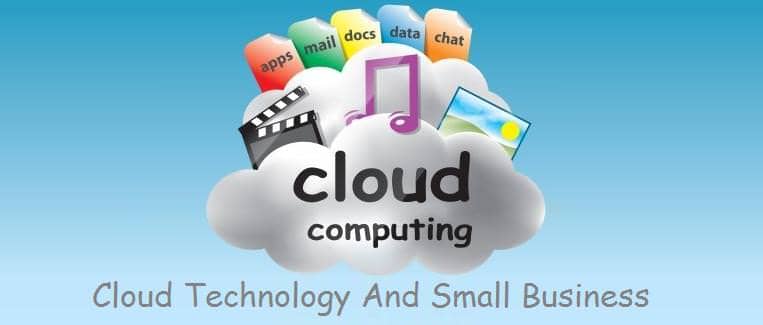Cloud computing, often simply called “the cloud” is the supply-demand computing resources-from applications to data centers, the Internet, according to a pay per use with features and functionality to deploy services and maintain uptime.
-
Elastic Resources to quickly and easily to suit demand
-
Pay according to usage : Measurable levels of use of services, so that you pay only for what you use
-
Self-service : All IT resources you need, with self-service access
Cloud Computing Services and Platforms :
-
Software as a Service (SaaS)
The cloud-based applications, or Software as a Service (SaaS)-running on remote computers “in the cloud” that belong to (and operated by) other, and are connected to users’ computers through the Internet and usually a Web browser.
For example, Google gmail is an application of cloud-based SaaS that replaces traditional programs e-mail running on your computer, such as Outlook or Eudora.
What are the advantages of SaaS cloud applications?
First, no need to buy, install, update and maintain software, as this is handled by the service providers. In addition:
You can register and start using cloud applications in minutes
You can access applications and data from any computer connected
If your computer is broken you do not lose any data because the information is in the cloud
-
The Platform as a Service (PaaS)
The Platform as a Service provides a cloud-based environment with everything that is required to support the complete life cycle of building and deploying Web-based applications (cloud)-without the cost and complexity of buying and manage the hardware, software, provisioning and hosting related.
With PaaS, you can:
Develop applications and get to market faster
Implement new web applications in the cloud in just minutes
Reduce complexity with middleware as a service
-
Infrastructure as a Service (IaaS)
Infrastructure as a Service provides organizations computing resources such as servers, network operation, storage and data center space, based on a payment system based on the level of use.
The advantages of “renting” these “virtual resources” in relation to the traditional onsite IT include:
Elastic demand services and to quickly resize
Provisioning and Auto-provisioning, self-service
Lower costs due to economies of scale and pooling of resources
Payment system according to usage-based costs measure service utilization
Deployment Models of Cloud Computing :
-
The public cloud
Public clouds belong to-and-operated companies that used to provide quick access to computing resources accessible to other organizations or individuals. With public cloud services, users need to purchase hardware, software or support infrastructure, all of which is owned and managed by the suppliers.
Many companies are using Software as a Service (SaaS) supplied from the public cloud for applications ranging from customer resource management (CRM) Salesforce.com-a-like transaction management and data analytics.
Beyond SaaS applications, other companies are using public cloud services, including Infrastructure as a Service (IaaS) for adding more storage capacity or computing services without notice, and Platform as a Service (PaaS) for the development of cloud-based applications and deployment environments.
-
Private cloud
A private cloud is owned and operated by a single company that controls how virtualized resources and automated services are customized and used for various business lines and constituent groups. Private clouds exist to take advantage of much of the efficiency of the cloud and at the same time, provide greater control of resources and avoid multiple lease.
Among the main features of private clouds include:
A self-service interface that controls common services, allowing IT staff supply, assign and quickly deliver IT resources on demand
Highly automated management resource groups for everything ranging from computing power to storage, analytics and middleware
Sophisticated security and governance, designed to the specific requirements of a company
-
The hybrid cloud
A hybrid cloud base uses a private cloud combined with the strategic use of public cloud services. The reality is that a private cloud cannot be isolated from the rest of the IT resources of a company and the public cloud. Most companies with private clouds evolve towards managing workloads between data centers, private clouds and public clouds, giving rise to hybrid clouds.
Author : Asher ross is an expert technical writer from UK web hosting company eUkhost LTD. eUkhost has completed 11 successful years in Web hosting industry and specialized in deploying Cloud hosting services, Dedicated hosting and many more with free tech support and complete web hosting satisfaction.
